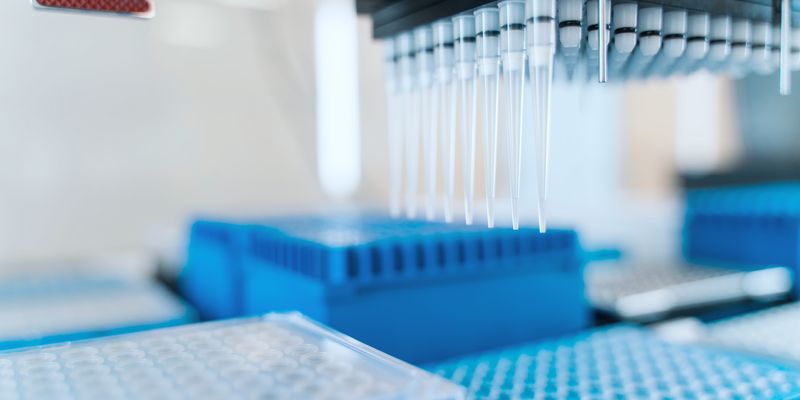
Launching a biotech startup isn’t an easy task. You have a fantastic vision, but making it happen requires thorough planning and the proper tools. Time, personnel, and finances are often constrained, and as your workload increases, manual processes can begin to weigh you down.
Scaling becomes challenging without systems in place to keep pace, which is where lab automation is emerging as a valuable asset for many founders.
## Reasons Labs Are Embracing Automation
Many early-stage biotech labs rely heavily on manual operations—pipetting, mixing, relocating liquids. This approach works initially, but as projects accumulate, chaos can ensue. Delays and potential errors may arise. At this point, startups like yours begin seeking more efficient solutions to ease the workload.
Automated liquid handling systems serve as a pivotal advancement in this regard. These machines are designed to take over repetitive tasks, precisely controlling small volumes of fluid with accuracy.
Whether you’re conducting cell cultures or high-throughput screening, they enhance speed and allow your team to concentrate on core scientific tasks. Some systems are quite adaptable, enabling you to customize them to suit your lab’s specific projects. This adaptability is crucial for maintaining agility during growth.
## Significantly Enhancing Your Workflow
Now let’s discuss efficiency. Automated liquid handling can save you countless hours—sometimes even days. These systems can manage multiple samples simultaneously without a hitch. Your researchers can’t match that level of pipetting by hand for extended periods. By alleviating the straightforward tasks, they can focus on more complex issues, such as designing experiments and interpreting results.
It’s not solely about speed, though. Machinery doesn’t fatigue or lose concentration, ensuring precise measurements every time. This minimizes errors and enhances the reliability of your data. Consistent operations facilitate quicker project timelines, removing the need for second-guessing your findings. This is a clear advantage for any lab aspiring to scale.
## Long-Term Cost Savings
We understand—automation may appear expensive at first, and the initial expenditure can be daunting. However, consider this: it’s an investment that yields returns. You’ll consume fewer reagents, waste less, and avoid expensive redo’s due to human errors. Those savings can accumulate rapidly.
Compare this to outsourcing lab work. While it might seem cheaper at the outset, the ongoing expenses for services and shipping can escalate. Keeping operations in-house through automation grants you control and reduces costs over time. Moreover, you can avoid the necessity of hiring numerous additional staff during peak times, which is a significant benefit for a lean startup.
## The Importance of Data Quality
In biotech, data is essential. Inaccurate lab practices can lead to unreliable results, jeopardizing a project—or, even worse, your reputation. Automated systems enhance accuracy by dramatically reducing human error. You can confidently rely on the data generated in your lab, and that reliability is invaluable.
Most liquid handlers document every process step, too, allowing you to retrace your methods or access records for audits. This is crucial for maintaining compliance and ensuring transparency. Labs with robust data management practices build trust more quickly, whether appealing to investors or collaborating with larger organizations.
## Growing Without Overwhelm
Growth is exciting, but it brings a deluge of new responsibilities—more samples, additional tests, stricter deadlines. Manual setups often falter under this pressure. Automation is your solution for managing larger workloads without increasing your workforce significantly.
The exciting aspect is that these systems can expand alongside your needs. Begin with fundamental features and enhance as necessary. Some machines operate independently; others collaborate with robots or plate readers. You choose what’s best for your lab’s needs, so you’re not stuck starting from scratch as you scale up.
## Lessening the Burden on Your Team
Recruiting and retaining top lab talent can be challenging. Training can be tedious, and staff burnout is a real concern. Automated tools help alleviate some of that pressure. With fewer manual processes, there are fewer opportunities for errors, reducing the need for constant troubleshooting.
Of course, technicians will need to familiarize themselves with the systems, but once they are proficient, they will accomplish more with less effort—operating machinery, tracking outputs, and maintaining oversight. This boosts morale and keeps productivity high. You’re maximizing your team’s potential without exhausting them.
## Ensuring Stress-Free Compliance
The biotech industry is overflowing with regulations. You’ll need to navigate protocols, track data, and meet regulatory requirements. Automated liquid handling simplifies compliance significantly. Each action is documented, making reporting and audits straightforward.
Regulators seek clear, consistent data along with documentation of your methodologies. Automation eliminates the ambiguity—every sample is treated equally, and every drop is accounted for. This fosters trust and keeps you compliant, a vital consideration as you scale.
## Is Automation Right for You?
Embracing automation is a significant decision, and it